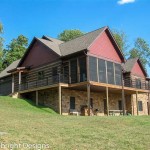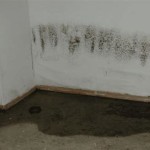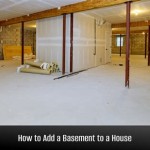What Is The Best Flooring For a Basement Cement Floor?
Selecting the optimal flooring for a basement with a cement floor requires careful consideration of several factors. Basements, by their nature, are often prone to moisture, temperature fluctuations, and potential flooding. Therefore, the chosen flooring material must be durable, water-resistant, and capable of withstanding the unique challenges presented by a below-ground environment. Furthermore, the flooring should contribute to the overall comfort and aesthetics of the space, making it a functional and inviting area of the home.
A cement floor in a basement provides a solid, level subfloor, which can be an advantage. However, cement is porous and can wick moisture from the ground, potentially leading to mold and mildew growth. It is crucial to address any existing moisture issues before installing new flooring. This might involve applying a concrete sealant or vapor barrier. Choosing the right flooring material can also help mitigate moisture problems and create a more comfortable living space.
Understanding Basement Flooring Challenges
The challenges specific to basement flooring installation stem primarily from the subterranean location. Fluctuating humidity levels are a common issue. During humid months, moisture can condense on the cold cement floor, creating a damp environment that promotes mold and mildew growth. This moisture can also damage flooring materials that are not water-resistant. In colder months, basements can be drafty and cold, making certain flooring options less comfortable underfoot.
Another challenge is the potential for water damage. Basements are more susceptible to flooding due to heavy rain, plumbing leaks, or sump pump failures. Even minor water intrusion can damage flooring and necessitate costly repairs. Addressing potential water problems before installing flooring is essential. This may include improving drainage around the foundation, installing a sump pump, and ensuring that gutters are clean and functioning properly. Consider the probability of these scenarios when choosing a flooring option.
Finally, consider the existing condition of the cement floor. Cracks, unevenness, or other imperfections can affect the installation and performance of the new flooring. It may be necessary to repair any damage before proceeding with the installation. Leveling compounds can be used to create a smooth, even surface for the new flooring. Ignoring these issues can lead to problems with the flooring down the line, such as buckling, cracking, or uneven wear.
Top Flooring Options for Basement Cement Floors
Several flooring options are well-suited for basement cement floors, each with its own advantages and disadvantages. The selection process involves balancing cost, durability, moisture resistance, comfort, and aesthetic appeal. Some of the most popular and practical choices include:
Luxury Vinyl Tile (LVT) and Luxury Vinyl Plank (LVP): LVT and LVP are excellent choices for basements due to their exceptional water resistance, durability, and ease of installation. These materials are constructed from multiple layers, including a wear layer that protects against scratches and stains, a decorative layer that mimics the look of wood or tile, and a waterproof core. LVT and LVP are available in a wide variety of styles and colors. They are relatively easy to install, often using a click-lock system that requires minimal adhesive. LVT and LVP are also comfortable underfoot and can help to insulate the basement, making it warmer in the winter. They are cost-effective and stand up well to potential flooding.
Engineered Hardwood: Unlike solid hardwood, engineered hardwood is more resistant to moisture and temperature fluctuations, making it a viable option for some basements. It consists of a thin layer of hardwood veneer bonded to a plywood or fiberboard core. This construction makes it more stable and less prone to warping or cupping than solid hardwood. However, it is still important to address any potential moisture issues before installing engineered hardwood. A vapor barrier should always be installed underneath the flooring to protect it from moisture rising from the cement floor. Engineered hardwood offers the look and feel of real wood, adding warmth and elegance to the basement.
Epoxy Flooring: Epoxy flooring is a durable and seamless option that is ideal for basements. It is made from a two-part resin that is mixed and applied to the cement floor. Once cured, it forms a hard, waterproof surface that is resistant to stains, chemicals, and abrasion. Epoxy flooring is available in a wide range of colors and finishes, including metallic and decorative flakes. It is easy to clean and maintain, making it a practical choice for basements. However, epoxy flooring can be more expensive than other options, and the installation process can be more complex, often requiring professional assistance.
Tile Flooring: Tile, including ceramic and porcelain, is another excellent choice for basement flooring due to its water resistance and durability. Tile is virtually impermeable to water, making it ideal for basements that are prone to moisture. It is also resistant to scratches, stains, and fading. Tile is available in a wide variety of sizes, shapes, colors, and patterns, allowing for a high degree of design flexibility. However, tile can be cold underfoot, so it may be necessary to install radiant heating to add warmth. Tile installation can also be labor-intensive and may require professional assistance.
Rubber Flooring: Rubber flooring, often in the form of interlocking tiles or rolls, is a resilient and comfortable option for basements, particularly those used as gyms or playrooms. Rubber flooring is slip-resistant, shock-absorbent, and sound-dampening. It is also water-resistant and easy to clean. Rubber flooring is available in a variety of colors and thicknesses. Installation is relatively simple, especially with interlocking tiles. However, rubber flooring may not be the most aesthetically appealing option for all basements.
Carpet Tiles: Carpet tiles are a practical and versatile option for basements, offering a softer and warmer alternative to hard flooring surfaces. Carpet tiles are easy to install and replace, making them a good choice for basements that may be subject to occasional water damage. If a tile becomes stained or damaged, it can be easily removed and replaced without having to replace the entire floor. Carpet tiles are available in a wide variety of colors, patterns, and textures. However, it is important to choose carpet tiles that are specifically designed for basements and are resistant to mold and mildew. It is also advisable to install a moisture barrier underneath the carpet tiles to protect them from moisture.
Factors to Consider When Choosing Flooring
Beyond the specific types of flooring, several overarching factors should influence the decision-making process. These considerations will help ensure that the selected flooring meets the needs of the homeowner and the specific conditions of the basement.
Moisture Resistance: This is arguably the most important factor to consider when choosing flooring for a basement cement floor. The flooring material must be able to withstand moisture and prevent mold and mildew growth. Materials like LVT, LVP, tile, and epoxy are inherently water-resistant and are therefore excellent choices. If considering other options, such as engineered hardwood or carpet tiles, it is crucial to take extra precautions to protect the flooring from moisture.
Durability: Basements are often used as recreational spaces, home gyms, or storage areas, which can put a lot of wear and tear on the flooring. The flooring material should be durable enough to withstand heavy foot traffic, dropped objects, and other potential sources of damage. LVT, LVP, tile, epoxy, and rubber flooring are all durable options that can stand up to the demands of a basement environment.
Cost: The cost of flooring can vary widely depending on the material, installation method, and square footage of the basement. It is important to set a budget and choose a flooring option that fits within that budget. LVT and LVP are generally more cost-effective than engineered hardwood, tile, or epoxy. Carpet tiles can be a budget-friendly option for those looking for a softer flooring surface.
Installation: The ease of installation is another important factor to consider. Some flooring options, such as LVT and LVP with click-lock systems, are relatively easy to install yourself, while others, such as tile and epoxy, may require professional installation. Consider your DIY skills and budget when making this decision. Professional installation can add significantly to the overall cost of the project.
Comfort: The comfort of the flooring underfoot is important, especially if the basement will be used as a living space. Hard flooring surfaces, such as tile and cement, can be cold and uncomfortable. Consider adding rugs or installing radiant heating to improve comfort. Softer flooring options, such as carpet tiles and rubber flooring, provide more cushioning and warmth.
Aesthetics: The flooring should complement the overall style and décor of the basement. Consider the color, pattern, and texture of the flooring when making your selection. LVT and LVP are available in a wide variety of styles that mimic the look of wood, tile, and stone. Tile offers even more design flexibility, with endless options for colors, patterns, and sizes. Choose a flooring option that will enhance the overall look and feel of the basement.
Maintenance: The ease of maintenance is another important consideration. Some flooring materials, such as LVT, LVP, tile, and epoxy, are easy to clean and maintain. They are resistant to stains and spills and can be easily wiped clean. Other flooring options, such as carpet tiles, may require more frequent cleaning and maintenance. Consider your lifestyle and how much time you are willing to spend on maintaining the flooring.
By carefully considering these factors, homeowners can make an informed decision about the best flooring for their basement cement floor. The right flooring can transform a basement from a damp, uninviting space into a comfortable, functional, and aesthetically pleasing area of the home.

What Is The Best Flooring To Put On A Concrete Basement Floor

White Bamboo 1 2 Inch 12mm Cork Floating Flooring

What Is The Best Flooring For A Concrete Floor Basement Illinado Llc

What Are The Best Flooring For Basement In Homes

Best Basement Flooring Options Forbes Home

How To Choose The Right Floor For Your Basement Gc Flooring Pros

Selecting The Best Basement Flooring Next Day Floors

The Best Flooring Options For Your Basement From Forest Llc

6 Inspiring Ideas For Basement Flooring In Portland

10 Ideas For Basement Flooring
Related Posts







